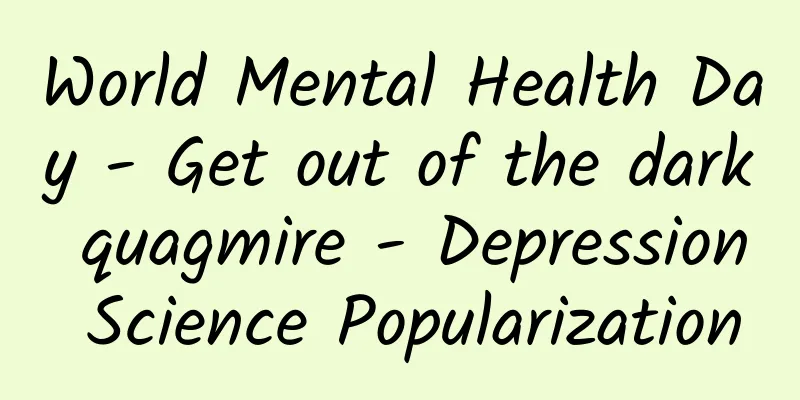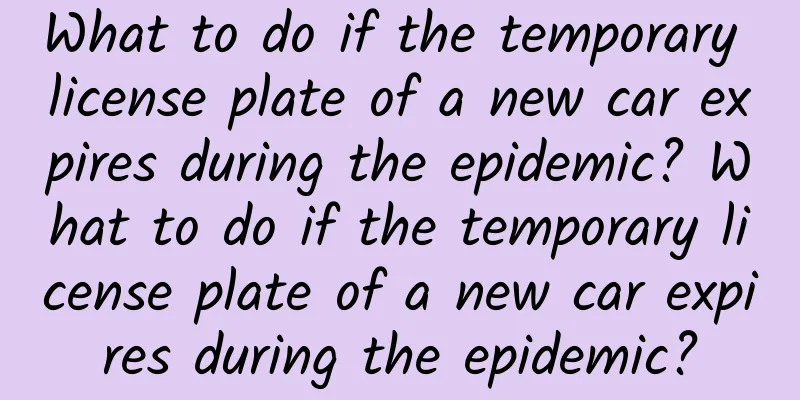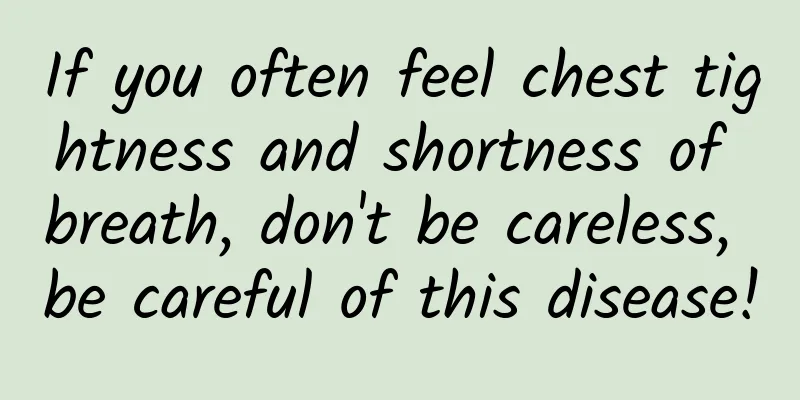World Mental Health Day - Get out of the dark quagmire - Depression Science Popularization

|
In recent years, depression has gradually come into people's attention. If you often feel sad, depressed, lose interest in hobbies, worry too much about trivial matters, or even suffer from insomnia or drowsiness, then you should be alert to whether you have depression. Depression, also known as depressive disorder, is characterized by significant and persistent low mood. The patient's mood can range from melancholy to grief, inferiority and depression, and even pessimism and world-weariness. There may be suicidal attempts or behaviors; severe cases may experience psychotic symptoms such as hallucinations and delusions. At present, the use of antidepressants is the main treatment for depression, and the rational selection of drugs has a good effect on depression. Let's first get to know antidepressants. The earliest discovery of antidepressants dates back to the 1950s, when the first generation of antidepressants was officially launched. Tricyclic drugs (TCA) treat depression by blocking the reabsorption of multiple neurotransmitters such as serotonin (5-HT) and adrenaline, and monoamine oxidase inhibitors (MAOIs) render monoamine oxidase ineffective, thereby reducing the decomposition of neurotransmitters. The first generation of antidepressants has strong efficacy but more side effects. For example, patients may experience antisympathetic side effects such as thirst and blurred vision after taking tricyclic drugs, and may experience constipation, drowsiness and other side effects after taking monoamine oxidase inhibitors. In the 1970s and 1980s, the second generation of antidepressants appeared, which regulate mood by blocking the reabsorption of the neurotransmitter serotonin. These drugs include selective 5-HT reuptake inhibitors (SSRIs), such as fluoxetine, paroxetine, and escitalopram; selective 5-HT and norepinephrine reuptake inhibitors (SNRIs), such as venlafaxine, duloxetine, and milnacipran; norepinephrine and specific 5-HT reuptake inhibitors (NASSAs), such as mirtazapine; and norepinephrine and dopamine reuptake inhibitors (NDRIs), such as bupropion. Second-generation antidepressants have fewer side effects and are more suitable for long-term use, so they are the most widely used in clinical practice. Compared with tricyclic antidepressants, selective 5-HT reuptake inhibitors are safer and more tolerable, and produce fewer anticholinergic side effects and cardiovascular toxicity. For patients with coronary artery disease, bupropion and selective 5-HT reuptake inhibitors should be selected, which do not lower blood pressure or change cardiac conduction. Antidepressants should be started at a low dose and used alone, and personalized according to the patient's condition and tolerance. If the treatment is effective, the same dose of antidepressants can be maintained for 4 weeks, and then the dose should be adjusted based on the efficacy and tolerance. There are large individual differences in the use of antidepressants. If an antidepressant is ineffective after 2-4 weeks of treatment, the doctor or pharmacist will first consider increasing the dosage of the drug. If it is still ineffective after 4-6 weeks of use, they will consider switching to antidepressants with other mechanisms. The combination of multiple drugs may cause very serious adverse reactions. For example, the combination of monoamine oxidase inhibitors and 5-HT reuptake inhibitors may produce adverse reactions such as 5-HT syndrome. They should be taken under the guidance of a physician or pharmacist. Will depression relapse after stopping medication? Depression is a disease with a high risk of relapse, so it is very important to continue taking medication to reduce the probability of relapse. Maintenance treatment recommends continuing to use antidepressants that are effective in the acute and consolidation phases, and continuing maintenance treatment at sufficient doses. After stopping medication, you should also pay attention to your condition at all times, and seek medical attention in a timely manner if there are signs of relapse. References: [1] Niu Yajuan. Interpretation of drug treatment in the "Guidelines for the Prevention and Treatment of Depressive Disorders in China"[J]. Journal of Clinical Drug Therapy, 2018, 16(05): 6-8. [2]Evidence-based guidelines for treating depressive disorders with antidepressants:A revision of the 2008British Association for Psychopharmacology guidelines [3]Pharmacological treatment of unipolar depressive disorders: summary ofWFSBP guidelines |
>>: World Mental Health Day | How many of these common rumors about mental illness do you believe?
Recommend
They say: A girl weighing 90 catties is fat, and a boy who is 1.78 meters tall is short
appendix: 1. A little-known fact about body shape...
Why does it hurt when my breasts are pinched?
In our daily life, many women suffer from nipple ...
The more types of additives there are in food, the less safe it is?
Someone asked me: I have seen a strange phenomeno...
Is lung cancer already in the middle or advanced stages when it is first discovered? One method may prevent it
Today is February 4th, which is also World Cancer...
Bloody vaginal discharge at 5 weeks of pregnancy
Women are particularly prone to miscarriage durin...
The puerperium usually lasts for several weeks.
There is a period of recovery after giving birth ...
Can pregnant women use disinfectant?
During pregnancy, pregnant women must stay away f...
What causes irregular menstruation?
Many women have irregular menstruation in their l...
How to regulate menstruation a week early
Menstruation is a physiological phenomenon that o...
What to do if you have an itchy chest?
The main reason for itching under the breasts is ...
What should I do if my breasts are swollen and I can’t suck them out?
Women who are breastfeeding often encounter some ...
The harm of losing weight and not having menstruation
Nowadays, female friends are more and more obsess...
Is the menstrual period in the luteal phase or the follicular phase?
Women's bodies also have many different stage...
my country's new coronavirus special medicine may produce another "dark horse" that can prevent mutant strains!
0.6 grams of antibody per injection, one injectio...
Core information on oral health for the elderly on National Love Teeth Day 2023
1. Maintain oral health and promote overall healt...









